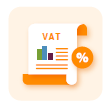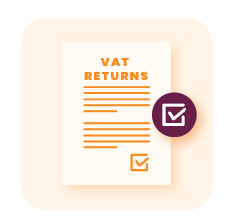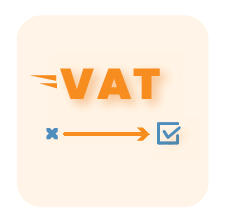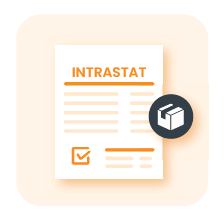Reverse Charge & “Call Off Stock” in Hungary
In most cases, suppliers are responsible for charging and remitting VAT. However, in specific situations described in Article 142 of the Hungarian VAT Act, the reverse charge mechanism is employed, and the responsibility for VAT accounting and remittance is shifted to the recipient of the goods or services.
Read more about Reverse Charge and “Call-off stock” in Hungary in our comprehensive guide.
Selling in Hungary?
Hungary – “Call off stock”
Call-off stock refers to products shipped by a supplier to a warehouse or storage area for the specific use of a designated client, who typically owns or controls the warehouse. Similar to consignment stock, there’s a requirement to register sales involving call-off stock that results in the movement of goods into Hungary. However, since January 1, 2020, EU-registered suppliers of call-off stock can bypass registration in Hungary through the EU “Quick Fix” simplification measures. Prior to this date, a different simplification method was available.
The EU’s call-off stock arrangements have been standardized across the EU from January 1, 2020, onwards, as part of the “Quick Fixes” in Article 17a of the EU VAT Directive, adopted into Hungarian law via Articles 12/A and 22 of the Hungarian VAT Act.
Under these regulations, if a supplier transports goods to a warehouse in another EU Member State for future delivery to a predetermined buyer, the initial transfer to the warehouse is not considered a taxable transaction. The taxable event occurs upon the subsequent transfer of goods ownership to the purchaser. This taxable transfer is treated as an intra-Community supply of goods from the supplier to the buyer (exempt with the right to deduction) and as an intra-Community acquisition by the buyer in the Member State where the goods are acquired. This rule negates the need for the supplier to register for VAT in the destination Member State.
Download the Hungarian VAT Guide
Hungary – Import VAT
Import of goods means the entry of goods into the Community from a third country. Liability for Hungarian VAT is based on where supplies of goods or services are made, not on where a supplier may be located. VAT is payable on all purchases of goods bought from outside Hungary, at the point of importation, at the same rate that would apply to the goods or services if supplied in Hungary. When services are purchased from a supplier established outside Hungary, place of supply rules or a “reverse charge” mechanism reach an equivalent result.
For VAT purposes, goods are treated as imported when:
- They arrive in Hungary directly from outside the EU and enter free circulation in Hungary or customs duty otherwise becomes chargeable on them; or
- They have been placed under a customs suspension arrangement and the goods are released into free circulation in Hungary or customs duty otherwise becomes chargeable.
Technically, the arrival of products in Hungary from another EU Member State is referred to as an “intra-Community acquisition” rather than an import. At the same time, the cross-border supply of services is excluded from the import system.
When products from outside the EU are imported into Hungary, the importer is normally required to pay VAT on the commodities (as well as customs and excise duties, if applicable). In this context, the term “importer” refers to a business that makes sales in Hungary and is, therefore, most likely required to register as a VAT payer.
However, suppose the importer is not registered for VAT. In that case, the Hungarian receiver of the products is required to pay import VAT in addition to customs excise taxes upon receipt of the items.
On or after July 1, 2021, international suppliers from third countries may opt to use the Import One Stop Shop (IOSS) to simplify VAT payment on low-value items imported into Hungary.
Last Updated: 05/04/2024
Disclaimer
The information provided by Global VAT Compliance B.V. on this webpage is intended for general informational purposes only. Global VAT Compliance B.V. is not responsible for the accuracy of the information on these pages, and cannot be held liable for claims or losses deriving from the use of this information. If you wish to receive VAT related information please contact our experts at support@gvc.tax








